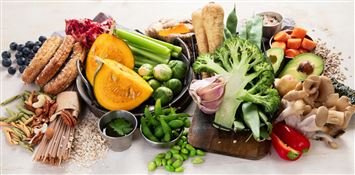Change starts on your tray: the Food-Hack project
Food-Hack is a pilot project currently underway at the canteen of the Cravino campus of the University of Pavia.
The initiative is part of the research project Fostering Healthier Eating Habits in University Cafeterias – the FOOD-HACK project, coordinated by the Laboratory of Dietetics and Clinical Nutrition at the University of Pavia, in collaboration with OSA (Office for Sustainable Actions) and with the support of Markas and EDISU.
The project aims to promote healthier and more sustainable food choices among university students, while also enhancing the overall quality of the cafeteria experience.
The initiative is part of the research project Fostering Healthier Eating Habits in University Cafeterias – the FOOD-HACK project, coordinated by the Laboratory of Dietetics and Clinical Nutrition at the University of Pavia, in collaboration with OSA (Office for Sustainable Actions) and with the support of Markas and EDISU.
The project aims to promote healthier and more sustainable food choices among university students, while also enhancing the overall quality of the cafeteria experience.

The Food-Hack project is based on nudging, a behavioral economics approach that modifies the environment in which decisions are made, gently guiding individuals toward healthier behaviors without imposing restrictions.
Rather than banning or obliging, it seeks to make healthy options more visible, accessible and appealing, using subtle yet effective strategies to encourage better choices — especially when it comes to food.
Several nudging interventions have already been implemented at the Cravino canteen: from the strategic repositioning of dishes on the serving line, to the use of visual symbols highlighting the healthiest options, and the introduction of educational materials such as posters, interactive placemats and informational flyers.
All actions are designed to promote typical components of the Mediterranean Diet — vegetables, legumes, whole grains, fruit and fish — and to offer students simple tools for eating better every day.
Rather than banning or obliging, it seeks to make healthy options more visible, accessible and appealing, using subtle yet effective strategies to encourage better choices — especially when it comes to food.
Several nudging interventions have already been implemented at the Cravino canteen: from the strategic repositioning of dishes on the serving line, to the use of visual symbols highlighting the healthiest options, and the introduction of educational materials such as posters, interactive placemats and informational flyers.
All actions are designed to promote typical components of the Mediterranean Diet — vegetables, legumes, whole grains, fruit and fish — and to offer students simple tools for eating better every day.

However, the Food-Hack project aims to go beyond what ends up on the plate: it helps make the entire mealtime experience more conscious, engaging and educational, encouraging a healthier and more sustainable relationship with food.
The project aligns with the UN 2030 Sustainable Development Goals, contributing specifically to good health and well-being (SDG 3), zero hunger (SDG 2), responsible consumption and production (SDG 12), sustainable cities and communities (SDG 11), and partnerships for the goals (SDG 17).
The project aligns with the UN 2030 Sustainable Development Goals, contributing specifically to good health and well-being (SDG 3), zero hunger (SDG 2), responsible consumption and production (SDG 12), sustainable cities and communities (SDG 11), and partnerships for the goals (SDG 17).
Want to bring these ideas to your own space?
Download the Food-Hack posters here!
1. Know the impacts of your food choices
2. Eat healthy, live with taste!
3. Food curiosities
4. How to compose you plate
Clear, engaging and easy to use — perfect for promoting healthy and sustainable food choices in any university setting.
1. Know the impacts of your food choices
2. Eat healthy, live with taste!
3. Food curiosities
4. How to compose you plate
Clear, engaging and easy to use — perfect for promoting healthy and sustainable food choices in any university setting.
